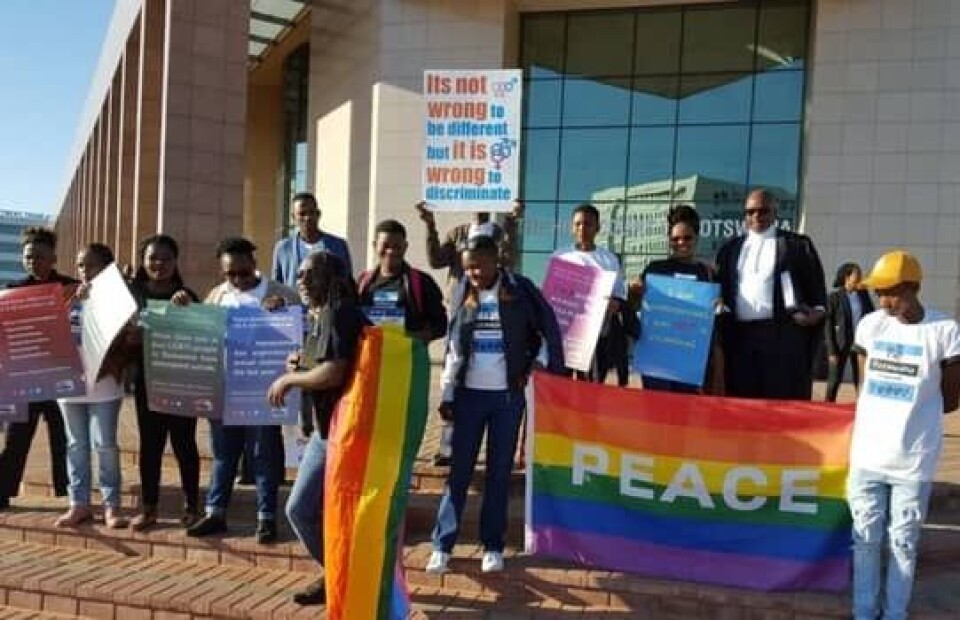Copyright : Re-publication of this article is authorised only in the following circumstances; the writer and Africa Legal are both recognised as the author and the website address www.africa-legal.com and original article link are back linked. Re-publication without both must be preauthorised by contacting editor@africa-legal.com
Same-Sex Relations Not Criminal

Before a 2019 judgment, same-sex acts were criminal in Botswana and punishable by up to seven years imprisonment. The government wants to return to this state of affairs, but its appeal met a brick wall. Alfred Olufemi reports.
A ray of hope for the lesbian, gay, bisexual, transgender and queer (LGBTQ+) community in Africa came in 2019 when a High Court ruled that consensual sexual relationships between adults of the same sex was no longer criminal in Botswana.
The landmark judgment followed decades of deference to the penal code — first enacted during the British colonial rule — which criminalised gay sex. Of the 54 African states, only 22 of them have legalised homosexuality; in some countries it is punishable by death.
But the 2019 judgment that overturned the penal code did not sit well with the Botswana government and it proceeded to the appellate court to challenge the verdict.
Sidney Pilane, the state attorney, argued that the high court judgment negates the position of the majority of Batswana. “Batswana respect the law and they respect courts. But don’t assume that they are happy when courts make decisions that courts should not make. Please don’t make that assumption. When Batswana are quiet, please don’t think that they agree. And when they watch court decisions come down, don’t think they necessarily agree with those court decisions,” he said.
However, when dismissing the appeal in late November, the five judges unanimously upheld the 2019 judgment, stating that criminalising same-sex relationships was a violation of the constitutional rights of LGBTQ+ individuals to dignity, liberty, privacy and equality.
“Those sections [of the penal code] have outlived their usefulness, and serve only to incentivise law enforcement agents to become keyhole peepers and intruders into the private space of citizens,” declared Ian Kirby, the court of appeal president. He noted that since the appellant’s grounds of appeal were unsuccessful, the appeal failed.
While the government is yet to make a statement on the outcome of the appeal, right activists globally have applauded the decision.
UN resident coordinator and representative of the UN secretary general in Botswana, Zia Choudhury, tweeted: “Woohoo! Justice for #LGBTQ community, and justice for all who believe in #HumanRights.”
"This will forever change the landscape of democracy, human rights and equality in Botswana. Finally the state will have no business in what two consenting adults do in their privacy," said Sethunya Mosime, chairperson the Lesbians, Gays and Bisexuals of Botswana (LEGABIBO). "This case has tested Botswana’s democracy and independence of judiciary. We can strongly say Botswana is a true democracy."
Caine Youngman, head of policy and legal advocacy for LEGABIBO, said: “I feel really happy, I feel relieved, I feel hopeful about our future as the LGBTIQ community in our country. I feel protected. I have all sorts of emotions, but the bottom line is I am really happy.”
Many other gay rights activists believe this might make other African countries, where same sex relations have been outlawed, rethink their positions.
To join Africa Legal's mailing list please click here
